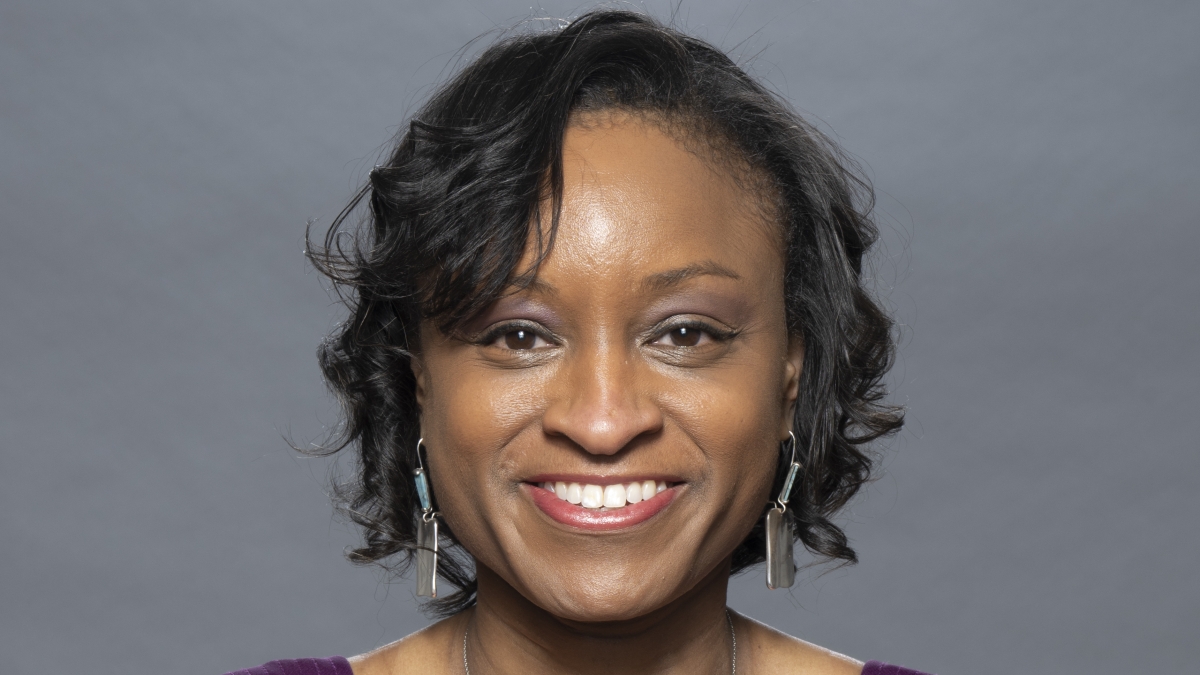Winning the ultimate prize

Angela Hill recently won a Pulitzer Prize for her work on a Washington Post investigative series examining the impact and increased popularity of the AR-15 in the United States and its involvement in mass shootings. Photo courtesy Marvin Joseph
When Angela Hill left a good-paying job in marketing for a shot at journalism, all she wanted to do was tell stories, inform people and make a difference.
And she did exactly that.
Her work for ABC News Network, Scripps News Washington Bureau and the Washington Post led to groundbreaking stories and recognition. More recently, it led to a Pulitzer Prize — one of journalism’s most esteemed awards.
She received the news via text.
“I was in my dining room preparing to say goodbye to my mom who was visiting when I checked my phone. I received a message from my former executive producer saying we had won a Pulitzer Prize for the AR-15 story,” Hill said. “I was shocked and read the text to my mom. She said, ‘You won a Pulitzer?’ In disbelief, I said, ‘I think so.’’ Hill added that she was ecstatic to share that special moment with her family.
Hill has received numerous awards for her work, including multiple Emmys and Peabodys, a George Polk, an Edward R. Murrow and the Robert F. Kennedy Grand Prize. In January, she was named the Ida B. Wells Professor in Journalism at Arizona State University’s Walter Cronkite School of Journalism and Mass Communication.
The news of her prestigious win traveled quickly from Washington, D.C., where Hill works at ASU’s location, to Downtown Phoenix, where her boss is located.
“We were very excited to have Angela Hill join the faculty at the Cronkite School earlier this year, and this award is just another indicator of her success and impact as a journalist,” said Cronkite School Dean Battinto Batts Jr. “She has already made her presence felt here, and we all look forward to learning from her. Congratulations, Angela.”
Hill was part of a team that won the Pulitzer Prize on May 6 for the Washington Post investigative series “American Icon.” As senior video producer at The Post, Hill was one of more than 60 journalists who embarked on a seven-month investigation, which examines the impact and increased popularity of the AR-15 in the United States and its involvement in mass shootings.
“Reporting on the AR-15 project resonated with me in a unique way as someone who has covered over a dozen mass shootings,” said Hill, who works with Cronkite News, Carnegie-Knight News21 and the Howard Center for Investigative Journalism. “I’ve conducted on-the-ground coverage for several of the incidents, including the Aurora, Colorado, movie theater shooting and Sandy Hook, talking with people who knew the victims or the assailant as well as those in the community impacted by the tragedy.”
Hill said at the onset of the project, the team discussed numerous ways to tell the story and were committed to a multimedia approach given the nuance of the topic and the bandwidth needed to tell it properly.
“It was a huge undertaking. I have so much pride in how we approached and told the story by weaving together words, photos and videos and incorporating the perspectives and experiences of those on the team,” Hill said. “The Post’s leadership gave us the space to experiment with telling the story in a comprehensive and creative way.”
Hill will continue reporting and is excited to share her skills and experiences to help equip future journalists from the Cronkite School.
“I believe strongly in journalism’s power to be a catalyst for change,” Hill said. “It’s important we prepare the next generation of students to ensure they have the skills, tools and experiences necessary to go forth and do great work.”
Hill has also been tasked by Cronkite with fostering collaborations with other journalism and communications schools and assisting in graduate student recruitment.
“If I can support them in getting better at their craft," she said, "it benefits society as a whole.”
More Law, journalism and politics

Exhibit uses rare memorabilia to illustrate evolution of US presidential campaigns
After one of the most contentious elections in history, a new museum exhibit offers a historical perspective on the centuries-old American process.“We The People! Electing the American President” had…

TechTainment conference explores the crossroads of law, technology, entertainment
What protections do writers, actors, producers and others have from AI? Will changing laws around name, image and likeness (NIL) eliminate less lucrative college sports programs?And what does…

How to watch an election
Every election night, adrenaline pumps through newsrooms across the country as journalists take the pulse of democracy. We gathered three veteran reporters — each of them faculty at the Walter…